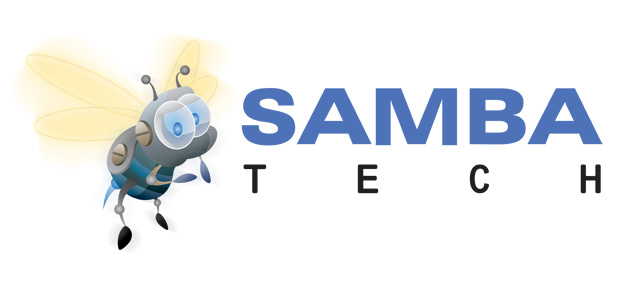Samba Tech: One of the Hottest Startups in the World
By Pedro Filizzola
Samba Tech’s story begins back in 2004 when our CEO and then marketing student, Gustavo Caetano, was an intern at a big health insurance provider in Brazil, but wasn’t enjoying the experience. He didn’t like the internal bureaucratic process and how slow things moved. He’s dream was always to create a company where he could make something innovative and at the same time have fun.
Eight years ago, Gustavo bought a top-of-the-line mobile phone, which at the time had an 18-colour-screen – and, whilst waiting for a delayed flight, he had tried to download a game and… he couldn’t. His marketing studies had taught him that when you want something that doesn’t exist it`s because there is market demand. He came back home and made a research and found that there was an opportunity in Europe. He built a final-year college-business-model, travelled to London, where he had a meeting with a game production company. They loved what they heard and Gustavo returned to Brazil with a deal in hand.
He arrived in the land of football and carnival full of excitement but quickly faced a harsh reality: he needed money to open his company. Gustavo called his father and cheekily asked him if he could introduce him to somebody rich and believe it or not, Samba Tech started exactly like this! Through a $ 100.000,00 investment, courtesy of his father’s contact, Gustavo founded the company as a mobile game reseller. Given it was a new market, there wasn’t any competition and the startup quickly began selling games in over 40 channels, sealed deals with the largest brands in the gaming market and opened offices in Argentina and Chile.
But following a successful year, Samba Tech figured it out that the mobile devices could be one more device to receive content. At that time, digital communication was on an increasing trend and Samba Tech decided to switch its focus to this sector and as a result, the company shut down the mobile operation. At the end of 2007 Samba Tech developed an Online Video Platform, which focused on professional video management, distribution, and monetization.
In other words we have developed a digital logistic concept, whose function is similar to that of the traditional logistics sector. For example, a wine producer needs to deliver a shipment, therefore it contracts a logistics company to take care of the whole process from collecting the wine to its delivery at the final destination. Samba Tech does the same, but with its customers’ videos, ensuring it reaches the end user.
After consolidating its position and acquiring some important clients, Samba Tech received investment from FIR Capital, a local brand of DFJ, which invested $ 3 million in 2009. In the same year, Gustavo, whilst waiting for another plane, was talking to the man next to him and mentioned what Samba Tech had developed and the business he had built in just a few years. The man happened to be a director from MIT (Massachusetts Institute of Technology) and introduced him to the “Sloan” G-Lab program. Samba Tech applied and was one of the 40 start-ups selected. Since then MBA students from the Institute have been helping the company to improve its operation and strategy.
Also 2009 saw Gustavo named CEO of the year by Editora Abril and Visa which marked the beginning of a new era at Samba Tech, that grew by over 200% that year and became the routine rate for the next few years.
Following 2009, Samba Tech won 3 more important awards: Red Herring North America 2010, CHINICT RisingStar 2011, and AlwaysOn 250 Top Private Companies 2012. It currently has a market share of over 80%, has expanded into Latin America and was chosen as one of the “10 hottest startups in Brazil” by Forbes and Business Insider. Currently, Samba Tech has embarked on a joint venture with the Australian company Adstream in the distribution of digital advertising content from agencies to TV Networks and the online video advertising division – Samba Ads – has been established as a separate subsidiary of the group. Furthermore, the company is moving to become the largest B2B Internet Group in Latin America.
History was being written by an under 30-year-old entrepreneur who had previously failed twice before reaching success. Because of his innovative and daring style Samba Tech today supports the distribution of around 1 billion content per year, reaching 1 out of 10 unique video users in Brazil. The company is one of the best positioned startups in the market and beloved by its stakeholders. How has this been achieved? Flexibility, focus, and growth.
- Flexibility: Companies need to adapt to the uncertainties that appear along the way. Uncertainty lies in the definition of a startup. Adapting to markets and trends is essential. The Rework, a book published by 37signals, and a New York Times best seller, says that “planning is guessing” – a plan is an attempt to predict the future. Spending too much time wondering what to do and not accepting the initial business plan as gospel, can be the difference between thriving in the market and being swallowed up by it.
- Focus: When you are young, focusing on a large market or a promising niche and specializing in something that nobody is doing, and preferably in which a big player isn’t currently interested, presents an enormous opportunity. The company can easily establish itself as a leader and reap the maximum benefits, however, it is important to draw a line in the sand and recognize the limits: whoever does everything does nothing. In a highly consolidated market, focus is even more important. By understanding your company’s strengths and focusing on them, one can ensure the necessary competitive advantages to overcome the war.
- Growth: It’s important that companies continuously find ways to ensure that their business grows. This differentiates a company from a poor story to a worldwide successful one. This is not necessarily tied to the scale of its operations in different countries and markets, but the demand for the products / solutions it produces. If more and more people use your company on a daily basis, the greater the chance you have of succeeding.
Brazilian Startups Association
![]() Based on the success of Samba Tech and his entrepreneurial flair, Gustavo was named the president of the Brazilian Startups Association. His job is to evangelize and spread the spirit of entrepreneurship and startups. ABStartups fosters digital entrepreneurship by assisting in the establishment of startups and offering a reference database for startups and investors. Its main role is to provide the opportunity for startups to exchange experiences, as well as to teach and learn methodologies and best practices.
Based on the success of Samba Tech and his entrepreneurial flair, Gustavo was named the president of the Brazilian Startups Association. His job is to evangelize and spread the spirit of entrepreneurship and startups. ABStartups fosters digital entrepreneurship by assisting in the establishment of startups and offering a reference database for startups and investors. Its main role is to provide the opportunity for startups to exchange experiences, as well as to teach and learn methodologies and best practices.
Brazil is Hot
Why form such an association in Brazil? Because Brazil is the next world hotspot. Currently it is the 6th biggest economy, has the 5th largest Internet market and is 4th in number of startups. The government will invest 40 billion reais in tech startups, 70 billion in broadband and it is expected to attract 30 billion for the World Cup. The timing couldn’t be better and emerging markets are the current big thing.
The internet has broken down barriers and we’re now seeing the birth and growth of global companies in Brazil. This is the reason why VC firms are opening offices in the country.
The Brazilian market is shaping up to be an exciting place with great potential. Many new businesses emerge each year and much of this is due to a change in the mentality of the Brazilian population, since they are happier to take risks and endeavor rather than just “getting a job”. There are many good reasons for starting a new company in the current climate for example: the increasing access to broadband, credit for SMEs and available information, as well consulting programs and accelerated growth.
Samba Tech’s success story proves that it is possible to build something big even outside of the U.S., so why not take a chance?
You may have an interest in also reading…
CFI.co Meets the CEO of Banco del País: María del Rosario Selman-Housein
For the past six years, María del Rosario Selam-Housein has stood at the helm of the Banco del País, expertly
Butcher, Baker, Candlestick Maker: Are the Skilled Trades Safe from AI?
From manufacturing to customer service, artificial intelligence is changing the working world. Are carpentry, plumbing, and electrical work immune? The
Q&A with IBM’s Bashar Kilani: Need for New Skills Emerging as We Re-Imagine and Transition to the New Normal
Bashar Kilani oversees IBM business in the Gulf countries and the Levant, working with clients and partners across industries. In




















































































